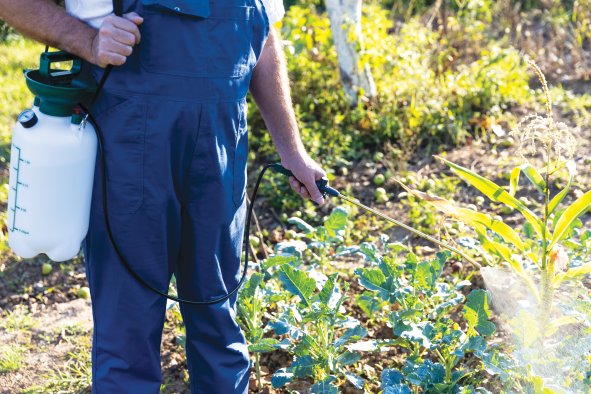Millions of Americans might be regularly taking herbal remedies containing harmful ingredients, new research has found.
At least 15.6 million U.S. adults may have consumed one herbal product with the potential to damage their liver within the last 30 days, according to a new paper in the journal JAMA Network Open.
Of these products, 4.7 percent of people surveyed reported having consumed unregulated turmeric, green tea, ashwagandha, Garcinia cambogia, red yeast rice, or black cohosh products, which may have "hepatotoxic effects" on the body.
"We estimated that at least 15.6 million US adults used at least 1 of 6 potentially hepatotoxic botanical products within the past 30 days, which was similar to estimated number of US adults prescribed an NSAID or simvastatin," the researchers wrote in the paper.
"Given a lack of regulatory oversight on the manufacturing and testing of botanical products, clinicians should be aware of possible adverse events from consumption of these largely unregulated products," they said.
According to the paper, millions of people consume herbal and dietary supplements (HDS) to improve their health, but many of these products actually contain liver-damaging substances, which can be harmful if accidentally taken at too high a dose. Some products even had discrepancies between their ingredient lists and what they were found to actually contain, the authors said.
"The Drug Induced Liver Injury Network (DILIN), a multicenter U.S. observational program that collects and analyzes data from patients with hepatotoxic effects attributed to various drugs and HDS products, found that the proportion of DILI cases from HDSs nearly tripled from 7 percent in 2004 to 2005 to 20 percent in 2013 to 2014," the researchers wrote. "The most commonly implicated botanical products in the DILIN include turmeric, kratom, green tea extract, and Garcinia cambogia, with potentially severe and even fatal liver injury."
The researchers say that turmeric, green tea, ashwagandha, Garcinia cambogia, red yeast rice, and black cohosh products are the six products most commonly implicated in liver injury in the U.S. In their survey of around 10,000 people, about 4.7 percent of US adults reported having consumed at least one of these six during the prior month. Two hundred and thirty-six people reported having taken turmeric supplements, 92 took green tea-containing products, 28 consumed ashwagandha, 20 consumed Garcinia cambogia and red yeast rice, and 19 people consumed black cohosh.
The researchers describe how the turmeric products were taken to help with joint health and arthritis, while the green tea was taken to help with energy levels.
"However, multiple randomized clinical trials have failed to demonstrate any efficacy of turmeric-containing products in osteoarthritis," they wrote in the paper. "Multiple studies have failed to demonstrate any objective evidence of weight loss and sustained improvement in mood or energy levels with products that contain high levels of catechins or polyphenols found in green tea extract."
Upscaling this to the whole U.S. population, the researchers conclude that as many as 15.6 million U.S. adults may be consuming at least one of these products.
Liver damage connected to HDS use has been increasing, accounting for over 20 percent of liver injuries, the researchers said. This can lead to the need for a liver transplant and even death.
"The number of liver transplants due to HDS [drug-induced liver injury] in 2010 through 2020 increased over 70 percent when compared with 1994 through 2009," the researchers wrote.
The authors caveat their findings by noting that none of the people in the survey experienced any liver injuries, as the sample size was fairly small.
"This survey sample size was not adequate to detect hepatotoxic effects from botanicals or other adverse events since these arise in less than 1 percent of exposed individuals. Thus, our study was not designed to identify any causal relationship between consumption of the 6 botanicals of interest and the development of liver injury over time," the researchers wrote.
Regardless, the authors said that these findings highlight the frequency with which people take these kinds of supplements, and therefore the need for regulation around them to prevent liver injuries.
"Considering widespread and growing popularity of botanical products, we urge government authorities to consider increasing the regulatory oversight on how botanicals are produced, marketed, tested, and monitored in the general population," they wrote.
References
Likhitsup, A., Chen, V. L., & Fontana, R. J. (2024). Estimated Exposure to 6 Potentially Hepatotoxic Botanicals in US Adults. JAMA Network Open, 7(8), e2425822. https://doi.org/10.1001/jamanetworkopen.2024.25822
Disclaimer: The copyright of this article belongs to the original author. Reposting this article is solely for the purpose of information dissemination and does not constitute any investment advice. If there is any infringement, please contact us immediately. We will make corrections or deletions as necessary. Thank you.



